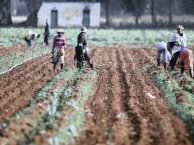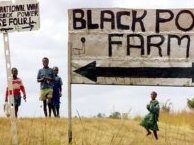
Over the past few years, investors have relied on investment agreements to bring a growing number of investor-state dispute settlement (ISDS) proceedings to challenge the legality of state conduct linked to land governance, such as land reform programmes, handling of farm occupations or termination of land transactions. They have sought significant amounts in compensation.
These connections between land rights and investment treaties have become increasingly prominent in the recent years, due to the growing pressures on land from mining and petroleum projects, agribusiness investments, special economic zones, tourism developments and infrastructure projects.
Land grabbing ISDS disputes include:
• Abengoa & Cofides (Spain) vs. Mexico: the municipality of Zimapán provided a land to the investor for the opening of a toxic waste disposal plant. Local communities demanded that the land be returned to them. The protests prompted the municipal council to withdraw the project’s license. The investors were awarded about US$30 million in 2013 (Mexico-Spain BIT invoked).
• Border Timbers, Border Timbers International and Hangani Development (Switzerland) vs. Zimbabwe: the dispute arises from the land reform in Zimbabwe, an effort to more equitably distribute land between black farmers and white Zimbabweans of European ancestry, who had traditionally enjoyed superior economic status. In July 2015, the case was decided in favour of the investor, for an undisclosed amount (Switzerland-Zimbabwe BIT invoked).
• Agro EcoEnergy and others (Sweden) vs. Tanzania: in September 2017 the Swedish investor EcoDevelopment registered a claim against the Tanzanian government for revoking a land title to grow sugar cane and produce ethanol, amid concerns over the impact on local communities and a wildlife sanctuary (Sweden - Tanzania BIT invoked).
Photo: Jill Buseth / War on Want
(March 2020)













